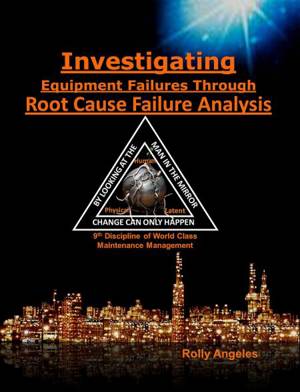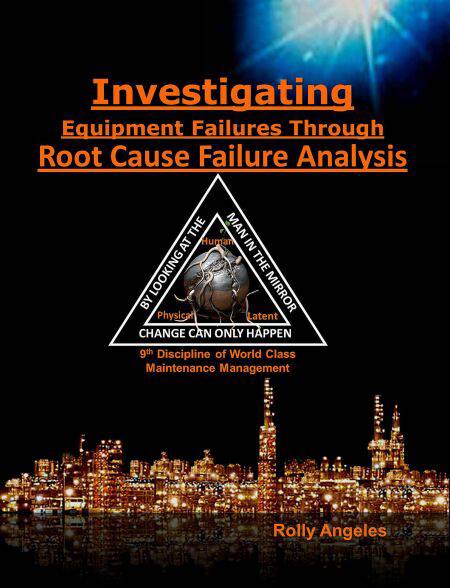
- Afhalen na 1 uur in een winkel met voorraad
- Gratis thuislevering in België vanaf € 30
- Ruim aanbod met 7 miljoen producten
- Afhalen na 1 uur in een winkel met voorraad
- Gratis thuislevering in België vanaf € 30
- Ruim aanbod met 7 miljoen producten
Investigating Equipment Failures Through Root Cause Failure Analysis, 9th Discipline on World Class Maintenance Management E-BOOK
1, #9
Rolly AngelesOmschrijving
People become successful in life by failing. The truth is, we cannot achieve success if we do not fail. Failure is inevitable. It will happen. Success comes after failure. Just like in industries, When an equipment failure happens, we need to accept it, learn from it, challenge it and finally overcome the failure. This means that when an incident happens, we have two options, either we learn from them or just ignore them. The message of Root Cause Failure Analysis is simply to take the first option and learn from the failure. This book may be different from other books on root cause as the thoughts I have written on this book defies the conventional methods and tools for conducting a root cause. There are many versions, techniques, books, training, and consultants worldwide that explain and teach about how to conduct a Root Cause Analysis or Root Cause Failure Analysis. In fact, there is no standard or, what we can say, a universal approach on how root cause is and should be done, including this book. This book may also contradict other books on how to conduct a root cause failure investigation. I am not stating that my method or their method is right or wrong, but rather my point is that the context of this book is based on what I teach and what I believed.
The author of this book based his interpretation on his personal knowledge, experience, and former affiliation with one of the leading providers of Root Cause. I believe that uncovering the root cause is based on 100 % facts and pieces of evidence unfolded. Any investigation that is not based on evidence will not generate the root cause but only the probable or the most likely cause of the failure. The words Root Cause Analysis (RCA), and Root Cause Failure Analysis (RCFA) will be used respectively in this book. The author would prefer to use the word Root Cause Failure Analysis for equipment-related problems, while Root Cause Analysis will be used for non-equipment-related problems such as accident or safety investigation, quality defects investigation, and administrative incident investigation. Failures must not only be prevented nor predicted, but what is important is challenging failures and learning from them. Finally, this book ends on what the real message of Root Cause Failure Analysis is all about.Some of the highlights of this book includes:
- Why Failures are Important
- Why MTTR and RCFA are The Opposite of Both Worlds
- The Slow and the Fast Train
- The Golden Rule on Root Cause Failure Analysis
- Is Root Cause Failure Analysis Reactive or Proactive?
- Difference Between Analytical Problem Solving Tools and RCFA
- Evidence: The Lifeblood of Root Cause Failure Analysis
- Three Types of Evidence on RCFA
- Understanding the Physical Cause of Failures
- Understanding Human Errors
- Is It Possible to Eliminate Human Error in Maintenance?
- Classic Case of Human Error - The Sinking of the RMS Titanic
- Ending Our Probe on the Latent Cause of the Problem
- Classic Case of Latent Cause: The Challenger Disaster
- Decoding the Song Man in the Mirror by Michael Jackson
- Detailed Steps in Conducting an RCFA Investigation
- Different Types of Corrective Actions
- Actual RCFA Case Study
- FAQs, Tips, and Don'ts on RCFA
- All Failures have a Reason for Failing
- Integrating RCFA Into the RCM Process
- The Message of Root Cause Failure Analysis
Specificaties
Betrokkenen
- Auteur(s):
- Uitgeverij:
Inhoud
- Taal:
- Engels
Eigenschappen
- Productcode (EAN):
- 9798201148492
- Verschijningsdatum:
- 28/09/2021
- Uitvoering:
- E-book
- Formaat:
- ePub

Alleen bij Standaard Boekhandel
Beoordelingen
We publiceren alleen reviews die voldoen aan de voorwaarden voor reviews. Bekijk onze voorwaarden voor reviews.











